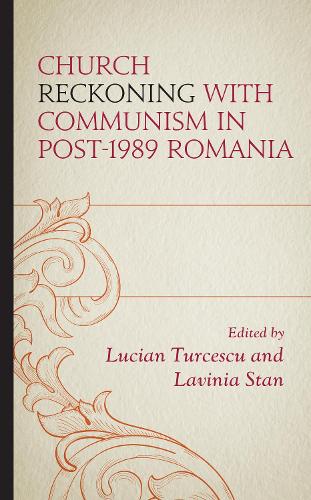
Church Reckoning with Communism in Post-1989 Romania
(Hardback)
Publishing Details
Church Reckoning with Communism in Post-1989 Romania
By (Author) Lucian Turcescu
Edited by Lavinia Stan
Contributions by Monica Ciobanu
Contributions by Vasilica Croitor
Contributions by Csongor Janosi
Contributions by Lucian Leustean
Contributions by Anca incan
Contributions by Lavinia Stan
Contributions by Lucian Turcescu
Contributions by Cristian Vasile
Bloomsbury Publishing PLC
Lexington Books
7th July 2021
United States
Classifications
Professional and Scholarly
Non Fiction
History of other geographical groupings and regions or specific cultures / socie
Orthodox and Oriental Orthodox Churches
322.10949809049
Physical Properties
Hardback
236
Width 163mm, Height 227mm, Spine 24mm
540g
Description
The present volume focuses on the relationship with communism of Romania's most important religious denominations and their attempt to cope with that difficult past which continues to cast an important shadow over their present. For the first time ever, this volume considers both the majority Romanian Orthodox Church and significant minority denominations such as the Roman and Greek Catholic Churches, the Reformed Church, the Hungarian Unitarian Church, and the Pentecostal Christian Denomination. It argues that no religious group (except the Greek Catholic Church, which was banned from 1948 until 1989) escaped collaboration with the communists. After 1989, however, most denominations had little desire to tackle their tainted past and make a clean start. In part, this was facilitated by the country's deficient legislation that did not encourage the pursuit of lustration, which in turn did not lead to a serious movement of elite renewal in the religious realm. Instead, a strong process of reproduction of the old elites and their adaptation to democracy has been the dominant characteristic of the post-communist period.
Reviews
[The] book provides a rich theoretical and empirical approach that will appeal to an audience with an interest in religious studies and society in East European countries. The book provides a systematic and detailed framework of the church-state relationship both at a personal and institutional level among the main Christian denominations and groups active in communist and post communist Romania.
-- "Europe-Asia Studies"Author Bio
Lavinia Stan is professor at St. Francis Xavier University.
Lucian Turcescu is professor in the Department of Theological Studies at Concordia University.
